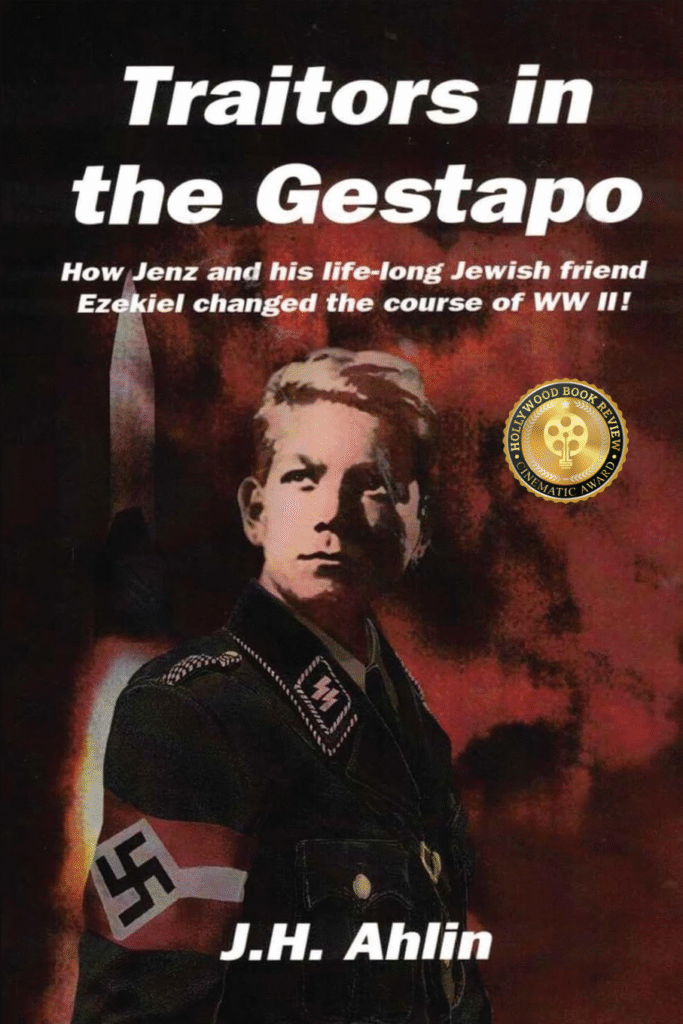The prose evokes a sense of place and time that is immersive, and there are countless cinematic moments: tense confrontations, midnight escapes, secret rendezvous, and even tender moments of romance and friendship that feel like they were lifted straight from a screenplay. Jenz’s secret romance with Ilsa, in particular, adds a rich personal dimension, though in an adaptation it may need to be reshaped to align with current audience sensitivities while still preserving the emotional charge of that memory.
J.H. Ahlin’s Traitors in the Gestapo is a powerful and emotionally grounded novel that captures the coming of-age of Jenz Ramsgrund, a young man of mixed heritage growing up inside the brutal machinery of Nazi Germany. Told with the clarity of memory and the weight of lived experience, the narrative follows Jenz and his best friend Ezekiel as they quietly resist the growing fascist regime despite being forced to participate in institutions like the Hitler Youth and facing the looming presence of the Gestapo.
This is a story rich in historical detail, yet it never feels like a history lesson. What makes it so potent is the deeply human perspective. Jenz isn’t a soldier or a spy; he’s a teenager wrestling with identity, morality, and survival in a country tearing itself apart. The emotional complexity of his journey, from shy and uncertain boy to physically imposing and morally resolute young man, is a journey that would translate beautifully to the screen. His loyalty to Ezekiel, and the dangers they both face, would make for an incredibly compelling lead arc in a film or limited series.
If there’s one area that might benefit from adaptation, it’s the pacing. The early chapters, while necessary for worldbuilding and backstory, occasionally lean toward exposition and slow the dramatic rhythm. Likewise, the heavy historical and political context, though accurate and valuable, could be tightened in a screenplay version to maintain tension and forward momentum. Fortunately, these are natural changes in the adaptation process and don’t diminish the book’s narrative strength.
Ultimately, Traitors in the Gestapo feels like the kind of historical drama that audiences continue to connect with, one that captures both the horror of a regime and the quiet bravery of individuals who chose not to look away. It’s a love letter to decency in a time of cruelty, with characters that live and breathe through every page. Its cinematic potential is high, especially for studios or streaming platforms looking for stories that blend tension, character depth, and historical weight.
This novel deserves to be seen not just as a book, but as a blueprint for a moving and visually arresting adaptation. It has emotional gravity, strong lead character, and vivid historical setting. With the right screenwriter, this story could truly shine in motion adaptation. In fact, the subtle shifts in language only add to the memoir’s authenticity, highlighting the immigrant voice grappling with two worlds.
Purchase the Book Today on Amazon.
Author: J.H. Ahlin
Page Count: 334 pages
Reviewer: Sophia Rogers





